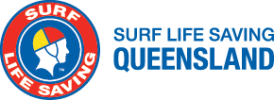| BREACH OF PEACE PROCEDURES | |
| Scope | This procedure applies to all operational levels of Surf Life Saving Queensland. |
| Purpose | To define the procedures when a disturbance, such as an altercation, occurs at a beach during patrol hours. |
| Introduction | It is possible that an altercation may take place adjacent to patrol areas. Members are to ensure that their own personal safety and that of any members in their charge. |
| Notification of SurfCom | SurfCom is to be notified immediately whenever a “group” of people arrives at a beach. SurfCom shall make full and accurate notes in the Log. |
| Notification of the Police | Upon receipt of information that a group has arrived at a beach, SurfCom is required to contact the police and pass this information on to them. SurfCom is to be notified immediately of any disturbance with a request for urgent police assistance. Normal notification is via 000. |
| Notification of other lifesaving services | SurfCom is to notify neighbouring clubs of the situation. Additional resources should only be sent to the incident if they are requested by the patrol captain or a duty officer/lifesaving services coordinator. SurfCom is to task operational support units to the area to provide water safety and rescue services. Duty officers/lifesaving services coordinator must be notified and a DO must attend. |
| Rescues | In the event of a rescue, consideration should be given to taking any patients to an adjacent beach. Normal protocols in regards to the safety of the patients and rescuers are important, e.g., surf conditions, unstable condition of patient, etc. |
| Altercations | If there is likely to be an altercation near patrol members, all members are to leave the beach with two members remaining at a vantage point to monitor the bathing public (if it is safe to do so). The members are to proceed to the club rooms until the disturbance has subsided. SurfCom must be advised of this. Any first aid and oxygen equipment is to be removed from the beach. Every effort is to be taken to ensure that young or inexperienced members are protected and do not become involved. |
| Roving Patrols | In the event that, at the time the whole patrol are leaving the beach, there is a roving patrol being undertaking by members of the patrol; the patrol captain is to radio the roving patrol members and advise them of the situation. The roving patrol members are to either proceed to a nearby club or not return to the location of the disturbance until they are advised that it is safe to do so. |
| IRB | If an IRB is signed on the IRB driver and crew are to patrol the beach from the water. The IRB must be equipped with a radio |
| Operations Support Group | If large groups start to display anti-social behaviour the patrol captain should request the attendance of the operations support service to provide additional water safety services. In the event that an incident occurs, operations support service members are not to become involved unless there is an absolute need and this is to rescue and remove members from any confrontation. If there is an incident and members are unable to leave the beach because access is blocked, every effort is to be made to have the members retrieved from the beach. The operations support service is to actively patrol the area in any event that the patrol is unable to patrol the beach. |
| Interaction with Offenders | Members must avoid becoming involved in any form of interaction with people causing a disturbance on the beach. Have no verbal communication with them and avoid any eye contact if possible. If members are harassed by “group” members, leave the area and make sure that you stay with experienced members. Ensure SurfCom has called the police. At no time is a member to communicate with any person who is harassing or intimidating them. |
| Injuries and Rescues | If any person is injured or requires to be rescued from the water, including offenders, normal first aid and rescue procedures are to be provided as long as it is safe to do so. |
| Patrol Uniforms | Any items of the SLSA patrol uniform shall ONLY be worn while on direct travel to or from patrol, while on patrol or when attending official surf lifesaving functions and community education activities e.g., media promotions of surf lifesaving. |
| Media | No member is to take part in a media interview, including those that are “off the record”. SurfCom is to be notified and they are to arrange the attendance of the duty officer/lifesaving services coordinator/supervisor or an appropriate club or branch official. |
| Additional information | Please refer to relevant circulars relating to these types of incidents. |
| Review | The State Lifesaving Committee will review this documentation annually. |



Post your comment on this topic.